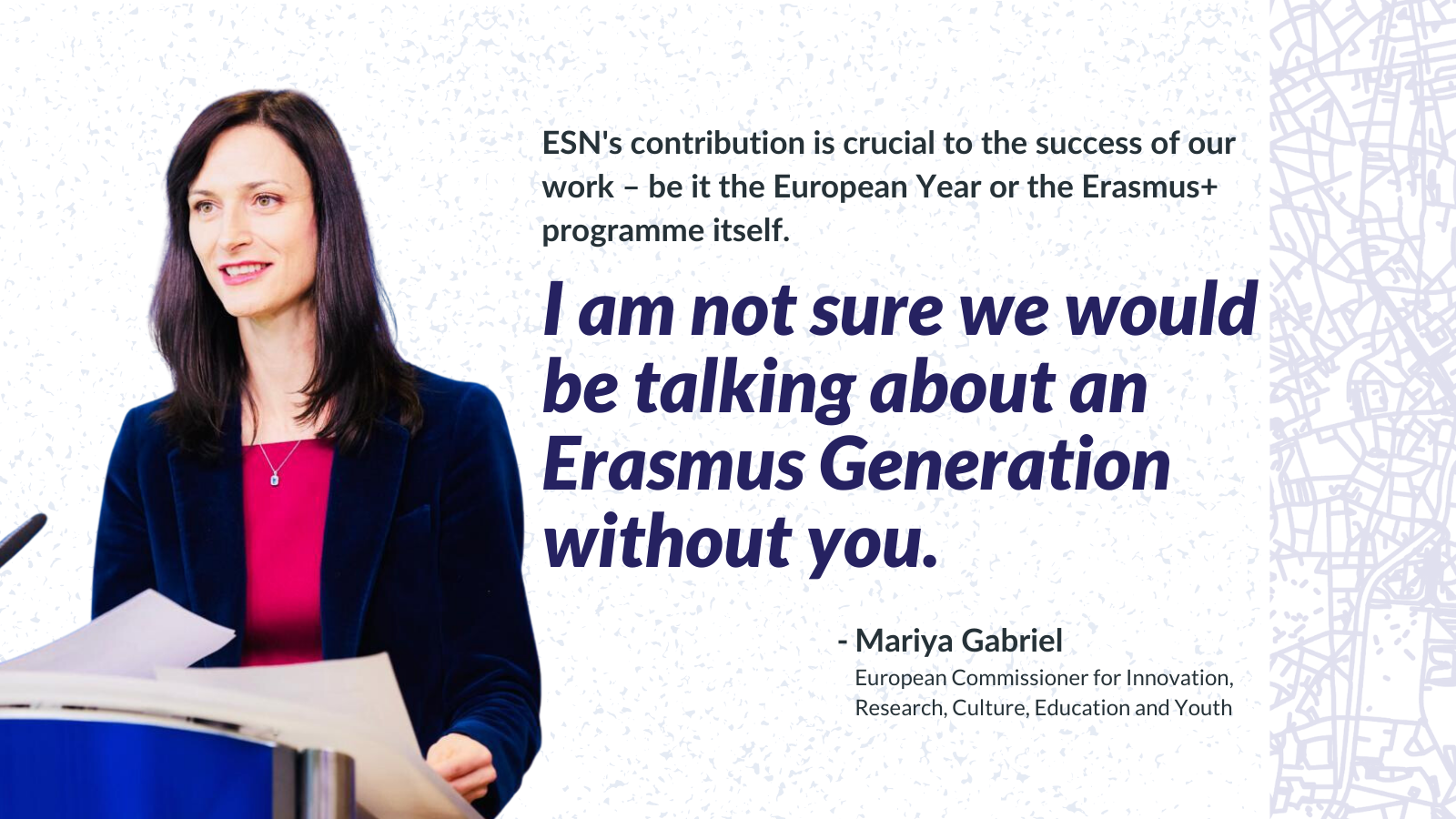
Dear students, alumni and colleagues,
Erasmus+ has been changing lives for more than 35 years. It has helped more than 6 million higher education students discover Europe, building the skills and confidence we all need to take a chance and make Europe a little richer, a little closer.
In this process, the Erasmus Student Network has played a pivotal role, hand in hand with the European Commission, building a Europe that grows stronger from the curiosity and the sense of European belonging in young people. Erasmus’ success is as much yours as it is ours. The same goes for the success of last year’s European Year of Youth, in which your participation was fundamental, and the legacy of which is being built by all of us, together.
I wanted to send this message not only to thank you for all the work you have put into these successes, but also to share how we will continue to support you as we make the European Education Area a reality for all Europeans. To that end, we are implementing the European Strategy for Universities, building on a tradition of transnational cooperation between universities and creating more opportunities for students.
For example, the pilot of the joint European degree label is currently underway, and we will soon see concrete proposals. This will enable students to obtain a degree by combining studies in several EU countries. Similarly, our European Universities Alliances, supported by the Erasmus+ programme, are connecting campuses across Europe, allowing students to learn over the course of an international, multi-disciplinary and civic-minded education experience.
At the same time, the European Student Card Initiative continues to unfold, making online and offline administrative processes for students participating in mobility as seamless as possible. Likewise, the further development of the Erasmus+ App – a single app to help Erasmus students with practical aspects of administration before, during and after their mobility – will be of enormous benefit. I hope that you and your fellow students will make this app your own.
Finally, we will present a proposal to update the existing learning mobility framework, the 2011 Council Recommendation “Youth on the Move”. Our goal is to reflect the enormous strides we have taken together, reaching millions more learners and learning from their experiences – from all of your experiences. And so I would like to ask you for feedback, especially as we are launching a public consultation that will be open until 3 May. Your input, as ESN members and as students, would be highly valued.
All this work will result in more mobility, in more young people with international experiences, and in more skills development, allowing for each learner to make their mark in Europe. Indeed, “International skills for more engaged societies” is a very fitting choice for this year's Erasmus Generation Meeting. After all, 2023 is the European Year of Skills.
So let me invite all of you to the European Year of Skills Festival, on Europe Day, 9 May. I hope that this year will enjoy the same success as last year’s European Year of Youth, which connected young people across Europe and beyond. We hope that, as students and alumni, you will continue to work together with us.
ESN's contribution is crucial to the success of our work – be it the European Year or the Erasmus+ programme itself. And we are grateful for your incredible effort and passion. I am not sure we would be talking about an Erasmus Generation without you. And that is something to be proud of.
Mariya Gabriel
Commissioner for Innovation, Research, Culture, Education and Youth


Follow ESN